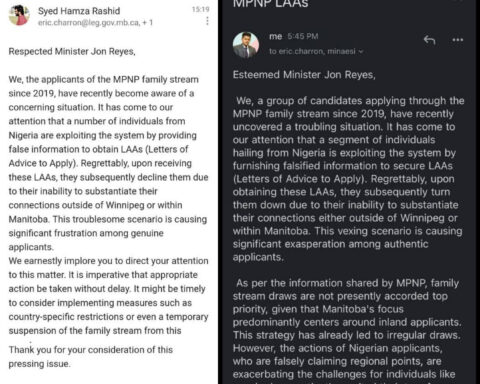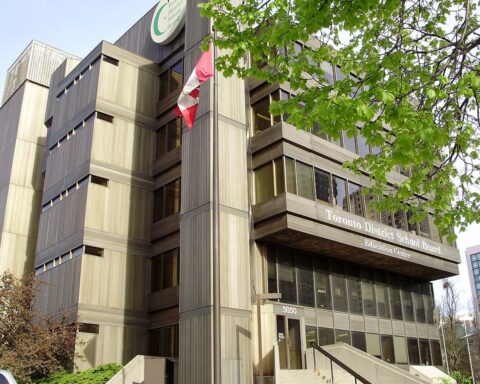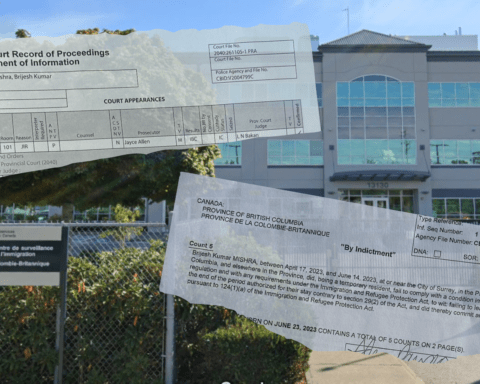With a tour in Bosnia, three tours in Afghanistan and a 15-year career in the Gang and Drug Unit of the Vancouver police, the new Minister of Defence, Harjit Sajjan, has been lauded as an exceptional choice for the post due to his significant experience.
Despite these qualifications, Sajjan was the target of an inappropriate comment made by a high-ranking member of the Canadian forces on Facebook. The comment pertained to Sajjan’s racial background, and while the post itself was not made public and the department’s response was swift, it did raise the question of how members of the Canadian cabinet were perceived—particularly those that come from ethnic or immigrant backgrounds.
Considering this, what explains why Indo-Canadians have had such success in elections and in receiving Cabinet positions?
In a “cabinet that looks like Canada”, seven of 28 Ministers in Prime Minister Trudeau’s new Cabinet are members of a minority group; four of those seven come from Indo-Canadian backgrounds. This proportion isn’t surprising, given that more than half of all immigrant MPs elected into the Liberal caucus come from Indian backgrounds.
Why Indo-Canadians?
There are a few reasons why this may be the case.
Indo-Canadian immigrants have been long familiarized with the political system that exists in Canada. Since India’s independence in 1947, Indians have operated within a bicameral British parliamentary system. In fact, India’s political system has complexities that make Canada’s elections seem like a walk in the park.
India has 1761 registered political parties, six of which have official status at the national level and 23 of which are represented in the current government. Its elections are massive affairs, demonstrated by the fact that 8251 candidates ran for a mere 545 seats in India’s last election.
In addition to this complexity, a total of 131 seats are reserved for scheduled castes and scheduled tribes. Two additional seats are reserved for the Anglo-Indian community, and if Women’s Reservation bill finally passes, eventually 33 per cent of the lower house will be reserved for women.
If you can navigate India’s democracy, Canada offers a welcome simplicity within a familiar political system.
Seven of 28 Ministers in Prime Minister Trudeau’s new Cabinet are members of a minority group.
History also makes a compelling case for Indo-Canadians’ current involvement in Canadian politics. While others have rightly noted that Indo-Canadians were not actively contesting elections until later in the 20th century, the community has been very politically active since the arrival of the first Indo-Canadians in the early 1900s.
One hundred years ago, Indo-Canadians formed the first ethnic political organizations in the country to contest the restrictions against Indians in those early days. They challenged race-based immigration policies, landing fees charged to Indian immigrants arriving by port, in addition to the rights to own property, run businesses and of course, to vote.
Needless to say, there is a deep history of engagement from the Indo-Canadian community in the Canadian political system.
What explains Indo-Canadian success in cabinet?
In some ways, there is evidence that success has indeed bred success.
In the 1990s, Herb Dhaliwal made history as the first Indo-Canadian cabinet minister, holding significant portfolios such as National Revenue, Fisheries and Oceans and Natural Resources.
Similarly, Ujjal Dosanjh held the Ministry of Health in the Paul Martin government, but only after serving as the first (and only) Indo-Canadian provincial premier in Canadian history.
Canada offers a welcome simplicity within a familiar political system.
Further, Indo-Canadians have exhibited a high level of political success, but this is not limited to electoral politics. There is significant integration of Indo-Canadian interests in non-profit, community-based and interest group organizations.
Organizations like Seva Food Bank in Peel Region, VIBC in the Greater Vancouver Region and the India-Canada Women’s Association have provided important platforms for social engagement for Indo-Canadians.It has resulted in a community that is engaged, comfortable and active in Canadian political and social environments.
What’s more, increasing numbers of second generation Indo-Canadians have run for federal office, combining their familiarity with Canadian politics and community activism with significant professional experience.
Numerous examples exist within the current Liberal caucus, including Amarjeet Sohi, Anju Dhillon and Kamal Khera. From this group of young, ambitious Indo-Canadians, Bardish Chadder, a first time MP, has become the Minister of Small Business and Tourism in the Trudeau cabinet.
What does this mean for other immigrant groups in the country?
There’s no ultimate answer as to why Indo-Canadians have been successful in the Canadian political environment and more significantly, in Cabinet.
Instead, the explanation lies in the congruence of numerous historical, experiential, political and personal reasons. There is no reason why Chinese, Filipino, Middle Eastern or Eastern European communities could not be similarly successful.
There are hopeful signs that other communities have started on this trajectory. In particular, the accomplishments of first-time MPs Ahmed Hussen and Maryam Monsef from the Somali-Canadian and Afghani-Canadian communities demonstrate that the Canadian parliament is well on its way to truly becoming a representative institution for Canada’s immigrant communities.
But representation in parliament does not mean much unless it translates to representation in cabinet. At least Prime Minister Trudeau’s cabinet is a solid step in the right direction.
Anita Singh is a founding partner of Tahlan, Jorden & Singh Consulting Group and a Research Fellow at the Centre for Foreign Policy Studies at Dalhousie University. Her research examines the role of diaspora groups and their influence on foreign policy, particularly the Indo-Canadian community and Canada-India relations.
Anita Singh is on the board of directors for the Council of Agencies Serving South Asians (CASSA), an umbrella organization with the goal of empowering the South Asian community. CASSA is committed to the elimination of all forms of discrimination from Canadian society.





